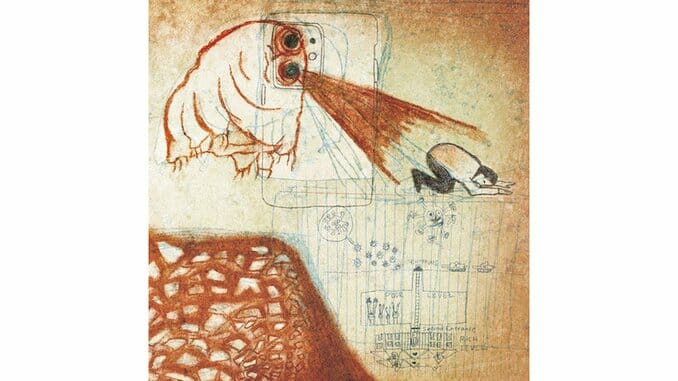Deerhoof Make a Revolutionary Racket on Future Teenage Cave Artists
Vulnerable moments and dynamic grooves are the keys to this record’s revolutionary beating heart

A nearly three-year gap between Deerhoof albums is a modest wait by most standards but a century in Deerhoof years. The veteran art-rock band seems to operate with an accelerated understanding of both time and creativity. Its last proper album, 2017’s Mountain Moves, was an eclectic affair with excursions into rap and opera and an enviable slate of guest stars—even at just 40 minutes, it’s perhaps the closest Deerhoof will come to its own Sandinista!.
For the follow-up, Future Teenage Cave Artists, Deerhoof follows the opposite path, eschewing outside contributors and retreating into its own insular world of noise: explosive rhythms, serrated guitar riffs, damaged fragments of melody and sweetness. The band says it was “borne of self-isolation and deprivation,” which is just as well, because self-isolation is where you’ll be listening to it.
It’s the sound only the four members of Deerhoof could make, with perhaps a greater-than-usual emphasis on keyboards: the shimmery synths infiltrating the title track, the strained piano arpeggios shepherding us into “Reduced Guilt”; the album even concludes with a deceptively straightforward recital of a Johann Sebastian Bach piece on piano. Not every experiment lands (the electronic clutter and assorted bric-a-brac in the middle of “‘Farewell’ Symphony,” the ramshackle Bach performance), but it’s all of a piece with Deerhoof’s spirit of anarchist invention.
-

-

-

-

-

-

-

-

-

-

-

-

-

-

-

-

-

-

-

-

-

-

-

-

-

-

-

-

-

-

-

-

-

-

-

-

-

-

-

-








































